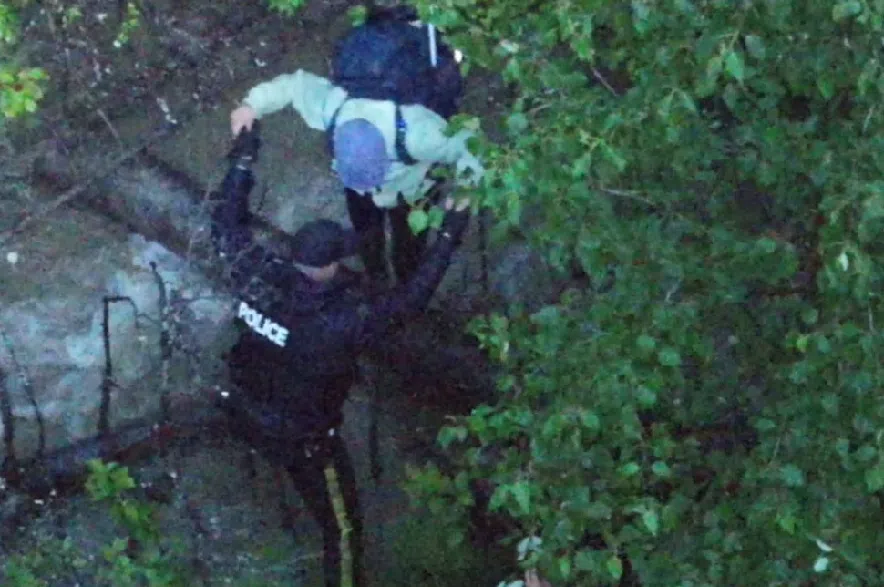Saskatchewan RCMP officers came to the rescue of a group of hikers on Sunday after sudden flooding rendered their route home impassable.
The four hikers were camping near Red River Canyon about 100 kilometres east of Carrot River on Sunday, the RCMP said, but the hike turned dangerous when water levels rose three feet overnight, making the riverside route they were hiking impossible to traverse.
The RCMP said the hikers were experienced, and had a cell phone with a satellite function that enabled them to call for help.
“I’ve hiked the Rice River Canyon trail before and I know the area well. It’s beautiful, but there’s no cell service and you have to be very careful because the weather can turn at any time,” Cst. Dylan Custaloe of the Saskatchewan RCMP’s search and rescue team explained in a statement.
“In this situation, we were dealing with adverse weather.”
READ MORE:
- Missing person cases led to busy year for Sask. search and rescue teams
- Sask. RCMP officers rescue woman during curfew check
- RCMP orchestrates woman’s rescue after vehicle goes through ice on Lac La Ronge
The Mounties used an aerial drone to locate the hikers, and officers on foot made their way to the stranded group. Using local knowledge of the area, the RCMP said officers were able to safely guide the hikers back to civilization along an alternate route.
Video footage from the rescue showed Mounties helping the hikers cross fast-moving water by walking along a fallen log.
#RCMPSK Officers aid four friends on hiking trip turned dangerous
Read more about it here: https://t.co/1u7jT1dVVM pic.twitter.com/A671l4Znde
— RCMP Saskatchewan (@RCMPSK) June 21, 2024
Last year, the RCMP brought drones to every detachment in the province to assist with searches, crime-scene photography, accident reconstruction and aerial monitoring. Custaloe said the drone was very helpful during the rescue on Sunday.
“The drone was able to give us a bird’s-eye view so that we could plan the safest way out of the canyon,” Custaloe explained.
“This group was well prepared and I’m grateful that they had the foresight to have the technology to call for help in an extremely remote area.”











